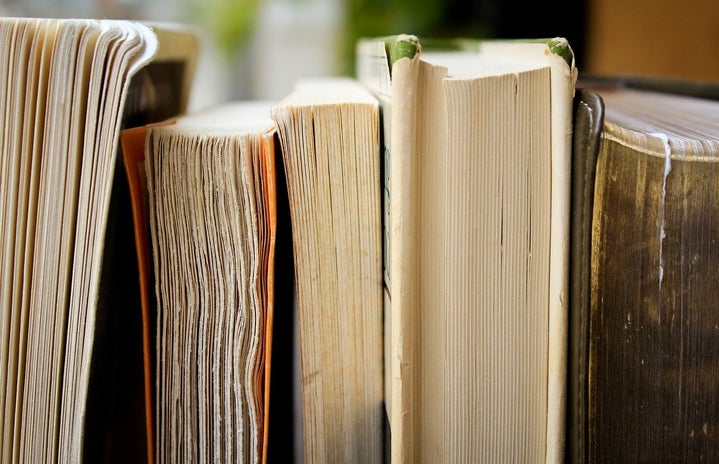Both Toru Dutt and Mascha Kaléko shaped world literature in their own unique ways. Toru Dutt (1856-1877) hailed from Bengal in Kolkata, but her horizons were set on the literature of France and England. A large degree of her familial life was spent in Kolkata where she was undeniably influenced by her family, who were also published writers of poetry at the time. Dutt remained an independent figure and poet, whose youthful nature led her and her family to eagerly travel to England and France. She attended the renowned University of Cambridge and kept in correspondence with new acquaintances and gained close friends who also shared her lifelong passion for literature, translation and travel. Even though she lived for just 21 years, her zeal for linguistics meant she was not only proficient in Bengali and Sanskrit, but she also embraced the languages of English and French.
Her openness to other cultures and the influence of her South Asian heritage helped to increase the worldwide impact of her works. Dutt had the admirable courage to write two novels in French, The Young Spanish Maiden and Le Journal de Mademoiselle D’Arvers, which remained unfinished at the time of her death. She also wrote ballads which were published. Most crucially, however, was her decision to translate French poetry into English in her collection A Sheaf Gleaned in French Fields which was given a favourable review by Edmund Gosse, a prominent English author and critic at the time. Furthermore, when French author Clarisse Bader wrote Le Femme dans L’Inde Antique (Women in Ancient India), it resonated so strongly with Dutt that she offered to translate it into English.
It is therefore due to her courage, determination, family, friendships and passion for world literature, travelling and translation that enabled Toru Dutt to enrich and inspire us with her works of prose, poetry and translations, as an unconventional woman writer. Dutt was unconventional as she fused her knowledge of Bengali, English and French poetry into her own unique style of poetry that transcended across cultures. One of the poems that resonates with me most profoundly is Our Casuarina Tree. Here in this poem, the natural imagery deployed by Dutt captures us in the net of temporality and the appreciation of family, friendships and the beauty of nature that surrounds us and transforms our sorrows into a minuscule grain of sand.
Here are some selected stanzas from Our Casuarina Tree as Dutt refashions the Miltonian poetic style :
‘LIKE a huge Python, winding round and round
The rugged trunk, indented deep with scars,
Up to its very summit near the stars,
A creeper climbs, in whose embraces bound
No other tree could live. But gallantly
The giant wears the scarf, and flowers are hung
In crimson clusters all the boughs among,
Whereon all day are gathered bird and bee;
And oft at nights the garden overflows
With one sweet song that seems to have no close…’
Here, the personification of the tree trunk as a ‘giant’ encapsulates an atmosphere of fear, hope and euphoria. A fear of powerful nature is emanated here as the tree is metaphorically transformed into a dominating ‘giant’ by Dutt. However, Dutt also portrays the tree as a magnificent figure that is humbling through the depiction of the romanticised natural imagery of the ‘garden’ which ‘overflows’ with the ‘sweet song’ that creates an atmosphere of tranquility and in turn, embodies euphoria and relentless hope.
‘And the waves gently kissed the classic shore
Of France or Italy, beneath the moon,
When earth lay trancèd in a dreamless swoon:
And every time the music rose,—before
Mine inner vision rose a form sublime…’
The nautical imagery, combined with the musical imagery, creates a consciousness of temporality and hope in the reader. This hope and consciousness of temporality is asserted through Dutt’s thought-provoking deployment of ‘the waves’ which ‘gently kissed the classic shore’ and ‘France and Italy, beneath the moon’ which signals that the poet intends for the reader to value and appreciate the brevity and the longevity of nature. In relation to the current coronavirus pandemic, even though we may not be able to travel across to countries which we may wish to travel to once again, we can still foster the imagination of hope in our thoughts and we can be transported by the powerful force of translation and poetry. Dutt’s legacy lives on through our hope and through our appreciation of the beauty of nature, a timeless source of comfort then as much as now.
In comparison with Toru Dutt, another inspiration of mine, Mascha Kaléko (1907-1975) was a German-Jewish poet who wrote her renowned poetry in German. After familial hardship during the First World War, she moved from Poland to Germany. During her youth, her avid desire to read and write her own poetry led her to attend Lessing College as well as Humboldt University in Berlin, although these classes were in psychology and in philosophy. Mascha Kaléko became a successful avant-garde poet in Berlin and was even well-received by Thomas Mann, a highly influential German author. One of her first major books of poetry included Das Lyrische Stenogrammheft (The Lyrical Shorthand Pad) which was published in 1933. Her poems feature verses that give us an insight into the lives of workers, saleswomen and clerks and their experiences of social injustice, as well as the glimpses of happiness that they had. After being
banned by the Nazi regime, her poems were then circulated in secret and were even hand copied. With her husband and her son, Kaléko moved to America and continued writing her poetry which revealed her longing to return to Germany. She became an American citizen in 1945 and her poetry was reprinted in Germany in 1958. Afterwards, she was able to return to Germany and gave numerous reading and speaking tours of her poetry and works with much acclaim. After refusing the Fontane Prize for Literature and being nominated by the Berlin Academy of Arts, Kaléko was struck by familial tragedy. Nevertheless, even after her death in 1975, Das Lyrische Stenogrammheft reappeared this time in more copies than ever before.
Here is an extract from a verse of one of my favourite Kaléko poems, entitled Young Love:
‘I see you, and our good old days of yore,
And how time trickles through our hands like sand…’
Similarly to Dutt’s Casuarina Tree, Kaléko through the natural imagery and visual imagery of ‘sand’ exhibits the presence and effect of being conscious of temporality and valuing time both in the past and the present and valuing hope that transcends into the future.
The determination and unwavering hope that emanates from the poetry of Toru Dutt and Mascha Kaléko enables us to be empowered by their voices and words even today. For that is the power of world literature, which unites and connects cultures and languages and that enriches us as global individuals.



